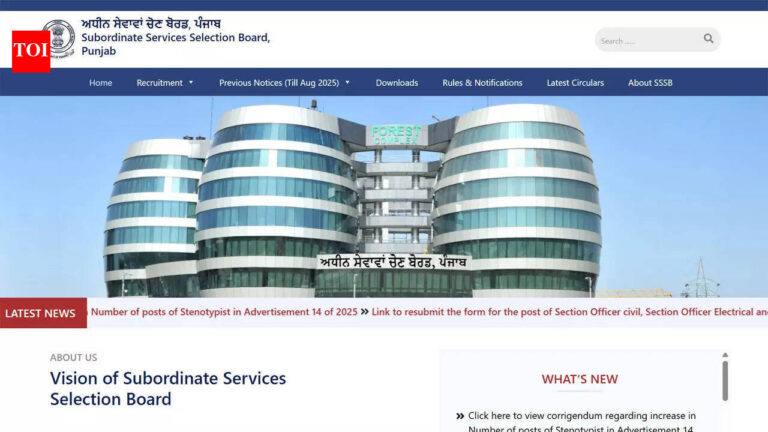
TL;DR:
- Saudi Arabia has established a new Medical Referral Centre under the Ministry of Health to oversee, regulate, and coordinate all
patient referral processes, both within the country and abroad. - The centre is tasked with 15 key responsibilities, including managing air medical evacuations, reviewing long-term medical leave and disability cases, and monitoring hospital capacity and patient transfers.
- An oversight committee, comprising representatives from major ministries and healthcare entities, will supervise the centre to ensure efficient, legally compliant patient care and streamlined medical service delivery across the Kingdom.
Saudi Arabia has approved a national Medical Referral Centre under the Ministry of Health, assigning it 15 strategic responsibilities to organize and oversee patient referral and treatment coordination within the Kingdom and abroad, as per Saudi Gazette. The move, announced following approval from the Council of Ministers and published in the official gazette Umm Al-Qura, is designed to streamline healthcare access, optimize use of resources, and ensure robust regulatory oversight as part of the Kingdom’s ongoing health sector transformation.
Purpose and scope
The Medical Referral Centre is tasked with regulating, supervising, and optimizing medical referral processes across Saudi Arabia. Its scope covers both domestic and international patient transfers, including air medical evacuations and the coordination of treatment outside the Kingdom. The Centre will implement decisions from the High Medical Commission (subject to approval by the Health Minister), oversee health attachés serving citizens abroad, and introduce a unified approach to monitoring hospital bed usage and clinical capacity.
Core responsibilities and functions
The new entity’s 15 responsibilities, as detailed in official communiqués, include:
- Setting, executing, and monitoring standardized referral procedures for both internal and cross-border patient transfers.
- Establishing procedural and operational rules governing air medical evacuations, with decision-making authority over evacuation requests.
- Reviewing and acting on requests for medical leave (over 30 days for civil service employees within Saudi Arabia), all sick leave issued abroad, medical disability claims, and health-based prisoner release, ensuring adherence to statutory regulations.
- Supervising the transfer and distribution of patients among health facilities, managing referrals based on hospital capacities, efficiency, and occupancy rates.
- Coordinating treatments abroad, guiding the work of health attachés, and ensuring the eligibility of patients for treatment, both domestically and overseas.
- Providing comprehensive technical support to referring physicians and health facilities, and creating mechanisms to evaluate service requests and maintain robust data tracking.
- Guaranteeing transparent reporting and operations, reducing red tape, and aligning the referral system with Vision 2030 objectives for efficiency and quality improvement.
Unified national platform
The Centre will leverage a national, digital platform for managing and tracking referrals, building on prior e-health systems (“Ehalati”, “SMARC”), to seamlessly connect all public and most private healthcare facilities nationwide. This platform will enable real-time tracking of available hospital capacity, the status of pending referrals, and inter-agency coordination, advancing the Health Ministry’s digital transformation agenda under Vision 2030.
Oversight and administrative structure
Administratively, the Centre will be directly accountable to the Health Minister and integrated within the Ministry of Health’s organization. It will be supervised by an oversight committee chaired by the Health Minister, with representation from:
- Ministry of Defense
- Ministry of Interior
- Ministry of National Guard Health Affairs
- King Faisal Specialist Hospital and Research Centre
- Saudi Health Holding Company
- Saudi Chambers Council
- Council of Saudi Universities
- Saudi Health Council
- National Health Insurance Centre
Committee meetings require a majority, led by the chair or their deputy for any decisions to be valid.
Strategic impact
The initiative forms part of Saudi Arabia’s Vision 2030 healthcare reforms, aimed at delivering equitable, high-quality medical services, boosting transparency, and ensuring that complex and emergency cases are matched with the right facilities at the right time. It is designed to reduce wait times, streamline patient journeys, and bolster the management of both routine and urgent care referrals.Saudi Arabia’s Medical Referral Centre is set to transform patient transfer and referral management, both within the Kingdom and for treatment abroad. Its creation underscores an increasing commitment to digital health, system efficiency, and regulatory clarity. This centralized approach is expected to yield better resource use, reduce fragmentation, and ensure that Saudi patients, whether at home or overseas, receive timely, coordinated, and legally compliant care.








